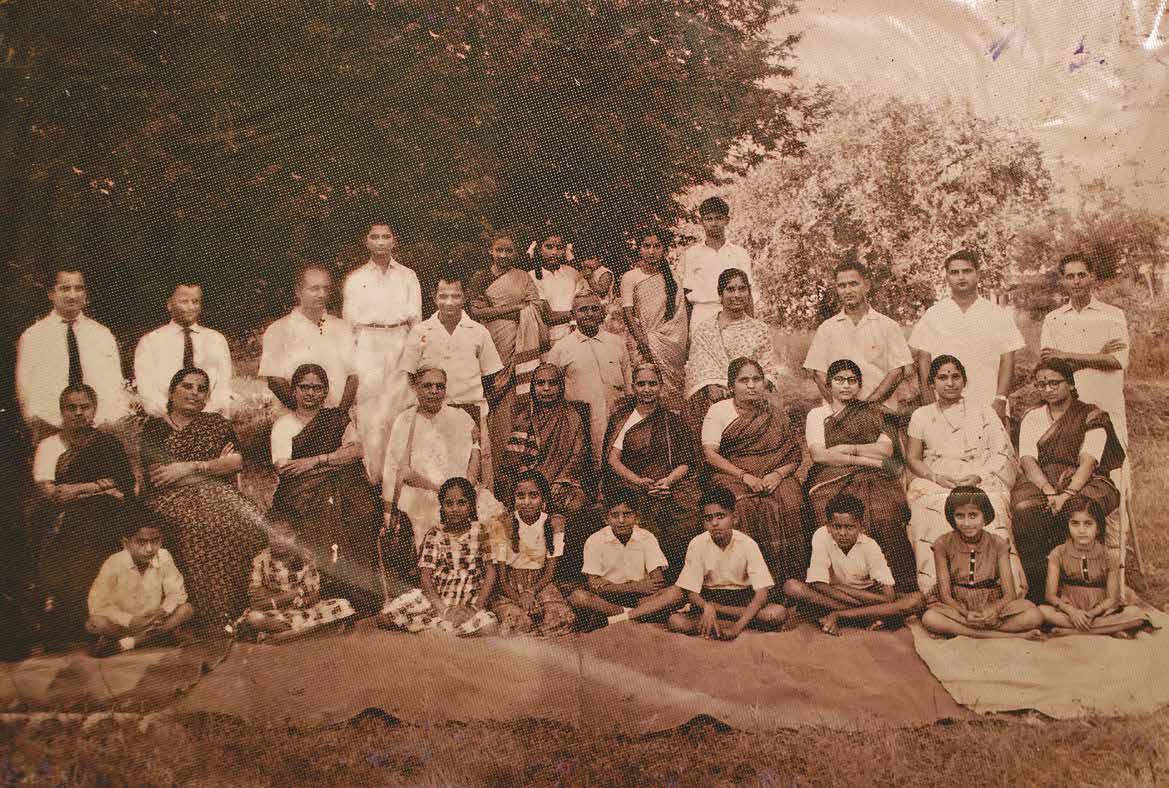कोशिश गोल्ड - मुक्त
The Lesser Halves
Outlook
|October 21, 2025
At Rashtra Sevika Samiti shakhas, women are offered empowerment—but only to a certain extent. Their roles remain largely defined: mothers, cultural custodians and loyal citizens

SUVARNA tightened the pleats of her saree, her movements precise and efficient.
There was no time for idle chatter, her eyes fixed on the task at hand. Around her, vessels clattered as she garnished food, preparing offerings for the ancestors.
The calendar nailed to the wall was not Gregorian but a Hindu panchang (almanac), marking the last day of pitra paksha, a fortnight dedicated to remembering one's forefathers. She had been taught that during this period, the veil separating the living and the departed thins out, and in that brief interlude, ancestors watch over their families, awaiting offerings.
It was a Sunday, a reprieve from her responsibilities as director at Wardha Nagrik Bank. And yet, in Wardha, Suvarna is better known as the pramukh (head) of the Rashtra Sevika Samiti, a role that intertwines her personal life with the organisation's mission of nurturing Hindu women as pillars of the nation.
Nothing detracts Suvarna from the duties entrusted by the Samiti. On Monday, with Navratri sthapan arriving early, she walks nearly a kilometre to the Ashtabhuja Mandir, a temple said to have been sculpted under the guidance of Laxmibai Kelkar, who founded the Samiti on October 25, 1936, amid the growing tide of nationalism. This founding moment was no accident; it emerged from Kelkar's determination to create a space for women within the broader Hindutva ecosystem, inspired by Keshav Baliram Hedgewar's Rashtriya Swayamsevak Sangh (RSS), established in 1925. Kelkar, widowed at 27 with eight children, had approached Hedgewar seeking involvement for women in the RSS, but he advised her to form a parallel organisation. Thus, on Vijayadashami in Wardha, the Samiti was born, emphasising women's roles in cultural preservation and national service, distinct yet complementary to the all-male RSS.
यह कहानी Outlook के October 21, 2025 संस्करण से ली गई है।
हजारों चुनिंदा प्रीमियम कहानियों और 10,000 से अधिक पत्रिकाओं और समाचार पत्रों तक पहुंचने के लिए मैगज़्टर गोल्ड की सदस्यता लें।
क्या आप पहले से ही ग्राहक हैं? साइन इन करें
Outlook से और कहानियाँ

Outlook
JOHNSON GRAMMAR SCHOOL, HYDERABAD
A Legacy of 45 Years in Academic Excellence and Holistic Development
2 mins
January 01, 2026
Outlook
Refuse, Don't Reuse!
Beyond the Recycle Bin: How Vantage Hall Girls' Residential School is Redefining Sustainability
1 mins
January 01, 2026

Outlook
Pragyan School: Where Learning Spreads Its Wings Beyond the Horizon
Pragyan School Greater Noida : Empowering Young Minds, Fostering Holistic Growth, and Shaping Future Leaders
2 mins
January 01, 2026

Outlook
A School That Celebrates Every Child's Potential
At Doon Public School, tradition meets innovation to shape confident, compassionate global citizens
2 mins
January 01, 2026
Outlook
Lodha Alibaug Penthouse Sale Boosts Coastal Luxury
A marquee penthouse at acquired in a transaction creating strong buzz within luxury real estate circles.
1 min
January 01, 2026

Outlook
K-12 School Rankings: A Guide to Right Future Choices
India is witnessing a robust transformation of the educational landscape where excellence in education, teaching and learning has scaled to heights like never before.
2 mins
January 01, 2026

Outlook
Scale Gives Way to Substance
As 2026 unfolds, industry experts see Indian real estate maturing beyond volume-led growth toward trust, design excellence, and enduring asset value.
2 mins
January 01, 2026
Outlook
Fully-loaded Magazine
It was in 2012 when I walked into the Delhi Outlook Magazine office and realised that this was a place that was throbbing with a rare energy that newsrooms are known for and I knew I'd always keep that intact. To be on the other side of a media organisation is a difficult road to navigate and yet, it comes with a unique fulfilment that I have felt often as I have defended the editorial freedom and integrity as the CEO.
7 mins
January 01, 2026
Outlook
Diary
Over 30 years ago, when I joined the weekly Sunday as a reporter, everyone around me said it was a big mistake. 'The age of magazines is over' was the chorus. Sunday Magazine did close down for various reasons but the age of magazines was not over. Evidently, it still isn't as this special issue of '30 Years of Outlook' proves. There is something exciting, unpredictable and complete about a magazine. The thrill of sitting down with a new edition of a magazine, holding the cover to the light to examine its design, opening the first pages, to look at the contents to savour what's inside, then to flip the pages to give a look-see at the various stories and articles, stopping at some stunning photograph or an illustration, and then finally zeroing in on which article to start reading from is a unique experience.
2 mins
January 01, 2026
Outlook
To Men Who Write Women Off
“Women feel differently, so they talk differently, have a different relationship to words and to ideas of which these are the vehicle. Asserting difference at the same time as demanding equal rights is obviously the position to take. We must impose female cultural models, which have a universal value in a world where ‘universal’ equals ‘masculine’. In other words, cultivate marginality until the margin takes up half the page. We have a long way to go...”—Marina Yaguello, French linguist
3 mins
January 01, 2026
Listen
Translate
Change font size
